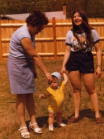Here is information on being the best caregiver you can be
Here is a way for nurses administrators, social workers and other health care professionals to get an easyceu or two

Get your subscription to Activity Director Today's e magazine
Here are some reasons why healthy eating is so important for the Seniors uou serve
HelpGuide.org
Senior Nutrition: Changin Dietary Needs
Every season of life brings changes and adjustments to the body. Understanding what is happening will help you take control of your nutrition requirements.
Physical changes
Metabolism. Every year over the age of forty, our metabolism slows. This means that even if you continue to eat the same amount as when you were younger, you're likely to gain weight because you're burning fewer calories. In addition, you may be less physically active. Consult your doctor to decide if you should cut back on calories.
Weakened senses. Your taste and smell senses diminish with age, so you may be inclined to salt your food more heavily than before—even though seniors need less salt than younger people. Use herbs and healthy oils—like olive oil—to season food.
Medicines and Illnesses. Prescription medications and illnesses often negatively influence appetite. Ask your doctor about overcoming side effects of medications or specific physical conditions.
Digestion. Due to a slowing digestive system, you generate less saliva and stomach acid as you get older, making it more difficult for your body to process certain vitamins and minerals, such as B12, B6 and folic acid, which are necessary to maintain mental alertness, a keen memory and good circulation. Up your fiber intake and talk to your doctor about possible supplements.
Lifestyle changes
Loneliness and Depression. Loneliness and depression affect your diet. For some, feeling down leads to not eating and in others it may trigger overeating. Be aware if emotional problems are affecting your diet, and take action by consulting your doctor or therapist.
Death or Divorce. Newly single seniors may not know how to cook or may not feel like cooking for one. People on limited budgets might have trouble affording a balanced, healthy diet. See the resources below for suggestions on cooking for one and easy, healthy menu selections.
Understanding malnutrition
Malnutrition is a critical senior health issue caused by eating too little food, too few nutrients, and by digestive problems related to aging. Malnutrition causes fatigue, depression, weak immune system, anemia, weakness, digestive, lung, and heart problems, and skin concerns.
Prevent malnutrition
Eat nutrient packed food
Have flavorful food available
Snack between meals
Eat with company as much as possible
Get help with food prep
Consult your doctor
Senior nutrition: Tips for creating a well-balanced diet
Thinking of trading a tired eating regime for a nutrient-dense menu? Good for you! It’s easy and delicious.
Avoid skipping meals – This causes your metabolism to slow down, which leads to feeling sluggish and poorer choices later in the day.
Breakfast – Select high fiber breads and cereals, colorful fruit, and protein to fill you with energy for the day. Try yogurt with muesli and berries, a veggie-packed omelet, peanut-butter on whole grain toast with a citrus salad, or old-fashioned oatmeal made with dried cherries, walnuts, and honey.
Lunch – Keep your body fueled for the afternoon with a variety of whole-grain breads, lean protein, and fiber. Try a veggie quesadilla on a whole-wheat tortilla, veggie stew with whole-wheat noodles, or a quinoa salad with roasted peppers and mozzarella cheese.
Dinner – End the day on a wholesome note. Try warm salads of roasted veggies and a side of crusty brown bread and cheese, grilled salmon with spicy salsa, or whole-wheat pasta with asparagus and shrimp. Opt for sweet potatoes instead of white potatoes and grilled meat instead of fried.
Snacks - It’s okay, even recommended, to snack. But make sure you make it count by choosing high-fiber snacks to healthfully tide you over to your next meal. Choose almonds and raisins instead of chips, and fruit instead of sweets. Other smart snacks include yogurt, cottage cheese, apples and peanut butter, and veggies and hummus.
Senior nutrition: Overcoming obstacles to healthy eating
Let’s face it. There’s a reason why so many seniors have trouble eating nutritiously every day. It’s not always easy! The following tips will help you “speak the language” of good nutrition and help you feel in control.
I can’t shop or cook for myself
There are a number of possibilities, depending on your living situation, finances and needs:
Home delivery – Many grocery stores have internet or phone delivery services.
Swap services – Ask a friend, neighborhood teen or college student if they would be willing to shop for you.
Share your home – If you live alone in a large home, consider having a housemate / companion who would be willing to do the grocery shopping and cooking.
Hire a homemaker – Try to find someone who can do the shopping and meal preparation for you. For more information, see Helpguide’s Services to Help Seniors Remain At Home.
Come back to activities director for more on healthy eating for seniors




